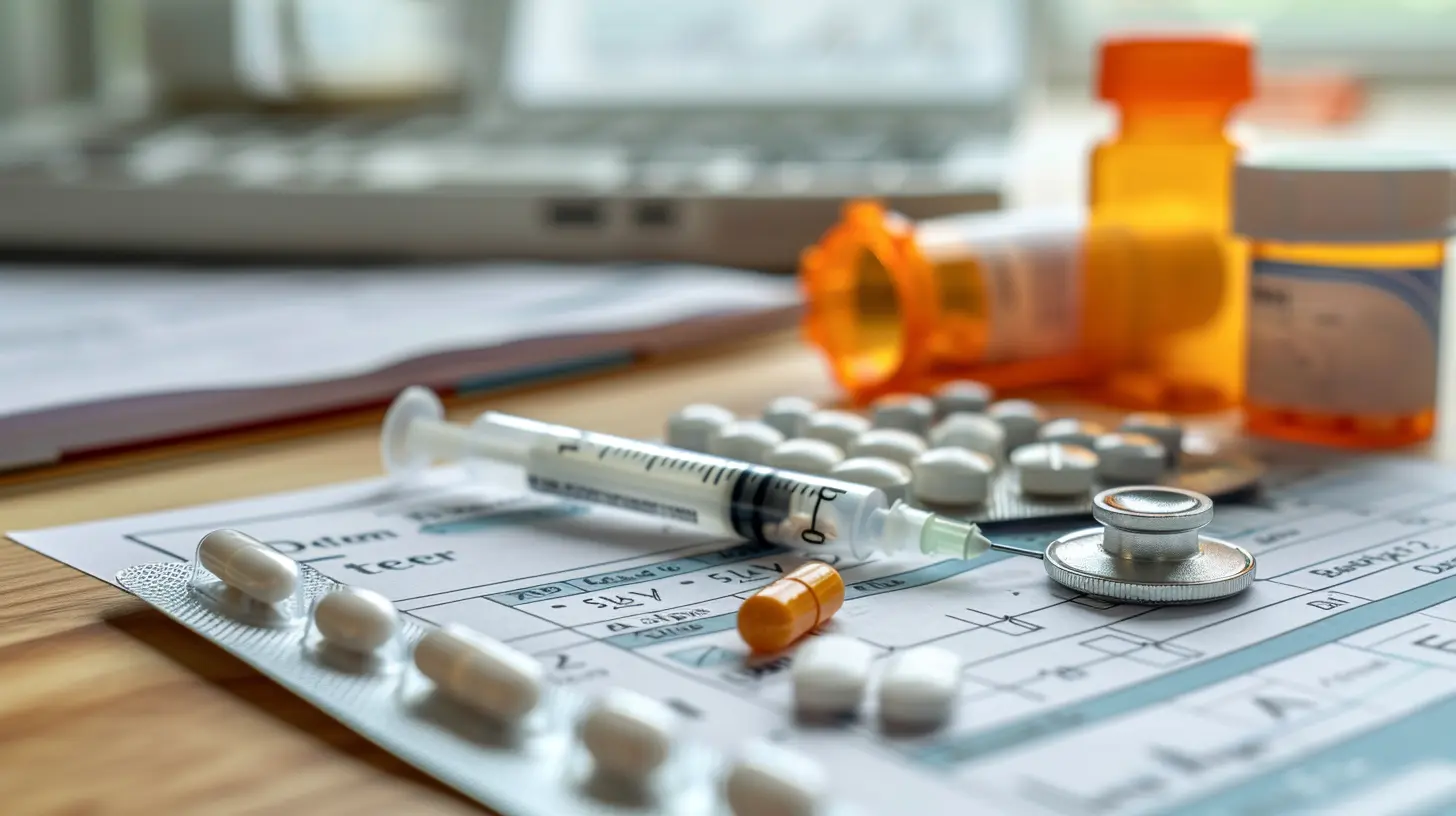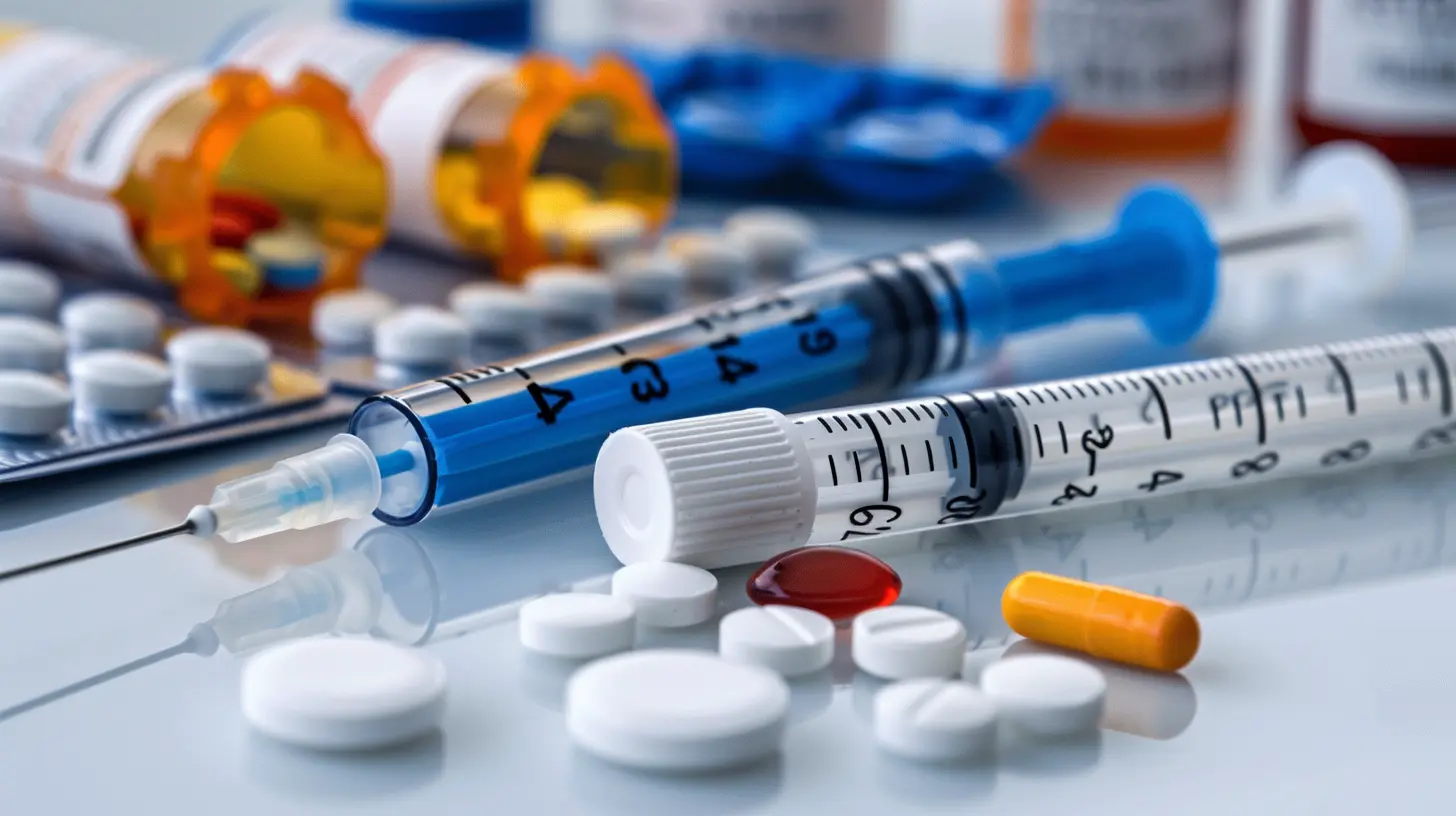The Role of Medication in Type 2 Diabetes Management
17 May 2025
Managing type 2 diabetes isn't just about cutting down on sugar—there’s a whole lot more to it. Sure, a healthy diet and exercise play a massive role, but for many people, medication becomes a crucial part of keeping blood sugar levels in check. If you or someone you love is dealing with type 2 diabetes, you might be wondering: How do these medications actually work? Are they really necessary? What are the pros and cons?
Let's break it down in simple terms, so you can understand how medication fits into the bigger picture of diabetes management. 
Why Medication Matters in Type 2 Diabetes
Type 2 diabetes happens when your body either doesn't make enough insulin or doesn't use it properly. Insulin is like a key that helps sugar (glucose) enter your cells to be used for energy. When that key doesn’t work well, sugar builds up in the bloodstream, leading to high blood sugar levels. Over time, that can cause serious complications, from nerve damage to heart disease.While lifestyle changes (like eating healthier and staying active) can help many people manage their blood sugar, sometimes they’re not enough. That’s where medication comes in—it helps lower blood sugar and keeps things in balance. 
Types of Medications for Type 2 Diabetes
There’s no one-size-fits-all approach when it comes to diabetes treatment. Doctors prescribe medications based on your specific health needs, how long you've had diabetes, and how well your body is responding to treatment.Here are some of the most common types of diabetes medications and how they work:
1. Biguanides (Metformin) – The First Choice
Metformin is the go-to medication for type 2 diabetes and is often the first one doctors prescribe. It works in two main ways:- Reduces glucose production in the liver – Your liver naturally releases glucose into your bloodstream, but metformin slows that process down.
- Improves insulin sensitivity – Your muscles absorb more glucose, reducing the amount floating around in your blood.
Metformin is popular because it’s effective, has few side effects, and doesn't usually cause weight gain. Some people experience mild stomach issues, but these often go away with time.
2. Sulfonylureas – Boosting Insulin Production
These medications (like glimepiride, glipizide, and glyburide) stimulate your pancreas to produce more insulin. They can be very effective in lowering blood sugar, but there’s a catch—they may cause low blood sugar (hypoglycemia) and weight gain. Doctors usually prescribe these when metformin alone isn't doing the job.3. DPP-4 Inhibitors – Keeping Insulin Active Longer
DPP-4 inhibitors (such as sitagliptin and linagliptin) help regulate blood sugar by preventing the breakdown of a hormone called incretin. Incretin helps the pancreas release insulin after you eat, so keeping it around longer means better blood sugar control. These medications are great because they don’t usually cause weight gain or low blood sugar.4. GLP-1 Receptor Agonists – The Multi-Taskers
These medications (like liraglutide and semaglutide) mimic a hormone that helps regulate blood sugar, slow digestion, and even promote weight loss. They’re usually taken as injections and have gained popularity because they address multiple issues at once.5. SGLT2 Inhibitors – Helping You Get Rid of Sugar
SGLT2 inhibitors (like empagliflozin and canagliflozin) work by preventing the kidneys from reabsorbing sugar. Instead, they help your body get rid of extra glucose through urine. These medications have additional benefits, like reducing heart disease risk, but they can sometimes lead to urinary tract infections.6. Thiazolidinediones – Improving Insulin Sensitivity
Also known as TZDs (such as pioglitazone and rosiglitazone), these drugs make the body more responsive to insulin. They do a great job of lowering blood sugar, but they come with a risk of weight gain and fluid retention. Because of this, doctors prescribe them cautiously, especially for people with heart disease.7. Insulin Therapy – When Other Medications Aren’t Enough
Some people with type 2 diabetes eventually need insulin. This could be because their body stops making enough insulin or other medications aren't working effectively. Insulin is injected and comes in different types, including long-acting and short-acting versions. While many associate insulin with type 1 diabetes, it’s an essential treatment for some type 2 diabetics as well.
Finding the Right Medication
With so many options, how do you know which medication is the right one? The answer depends on several factors:✅ Your blood sugar levels – If your A1C (a measure of blood sugar over time) is high, you might need a combination of medications.
✅ Other health conditions – Some medications also help with heart disease, kidney issues, or weight management.
✅ Side effects – Some drugs cause low blood sugar, weight gain, or digestive issues, so finding one that suits your body is key.
✅ Cost and convenience – Some medications can be expensive or require injections, which might not be ideal for everyone.
Your doctor will work with you to find the medication (or combination of medications) that fits your lifestyle and health needs. 
Medication Alone Isn’t Enough
Here’s the deal—medication is a powerful tool, but it works best when combined with healthy habits. Think of it like having a great pair of running shoes; they make running easier, but you still have to put in the effort.What Else Can You Do?
🔹 Eat a balanced diet – Focus on whole foods, lean proteins, healthy fats, and fiber to help stabilize blood sugar.🔹 Stay active – Exercise helps your body use insulin better, whether it’s a daily walk or strength training.
🔹 Monitor your blood sugar – Keeping track of your levels helps you and your doctor fine-tune your treatment.
🔹 Manage stress – Stress can spike blood sugar, so relaxation techniques like meditation or deep breathing can help.
🔹 Get enough sleep – Poor sleep messes with hormones and blood sugar management, so aim for 7-9 hours a night.
The Bottom Line
Type 2 diabetes management isn’t just about taking a pill and calling it a day. While medication plays a crucial role in controlling blood sugar, it works best alongside a healthy lifestyle. Whether you're just starting medication or adjusting your current treatment, working with your doctor to find the right approach is key.Remember, small changes add up. So, whether it’s taking your meds on time, making smarter food choices, or moving a little more each day—every step counts towards better diabetes management.
all images in this post were generated using AI tools
Category:
DiabetesAuthor:

Madeline Howard
Discussion
rate this article
4 comments
Honor Jenkins
Medications: A vital ally, not a sole solution.
June 5, 2025 at 5:02 PM

Madeline Howard
Absolutely! Medications are essential for managing type 2 diabetes, but they work best alongside lifestyle changes like diet and exercise.
Geneva Harmon
Great insights! Thank you for sharing this valuable information!
May 23, 2025 at 3:24 PM

Madeline Howard
Thank you for your kind words! I'm glad you found the information valuable.
Audra McAllister
Great insights! Understanding medication's role is vital for effective Type 2 diabetes management.
May 22, 2025 at 5:04 PM

Madeline Howard
Thank you! I'm glad you found the insights valuable in understanding the importance of medication in managing Type 2 diabetes.
Easton Jones
Great article! It’s important to highlight how medication can play a crucial role in managing Type 2 diabetes. Understanding the benefits and potential side effects empowers patients to work alongside their healthcare teams. Keep spreading this valuable information to help others make informed choices about their health!
May 17, 2025 at 3:44 PM

Madeline Howard
Thank you for your thoughtful comment! I'm glad you found the article helpful in highlighting the importance of medication in managing Type 2 diabetes. Empowering patients is key to effective healthcare!



